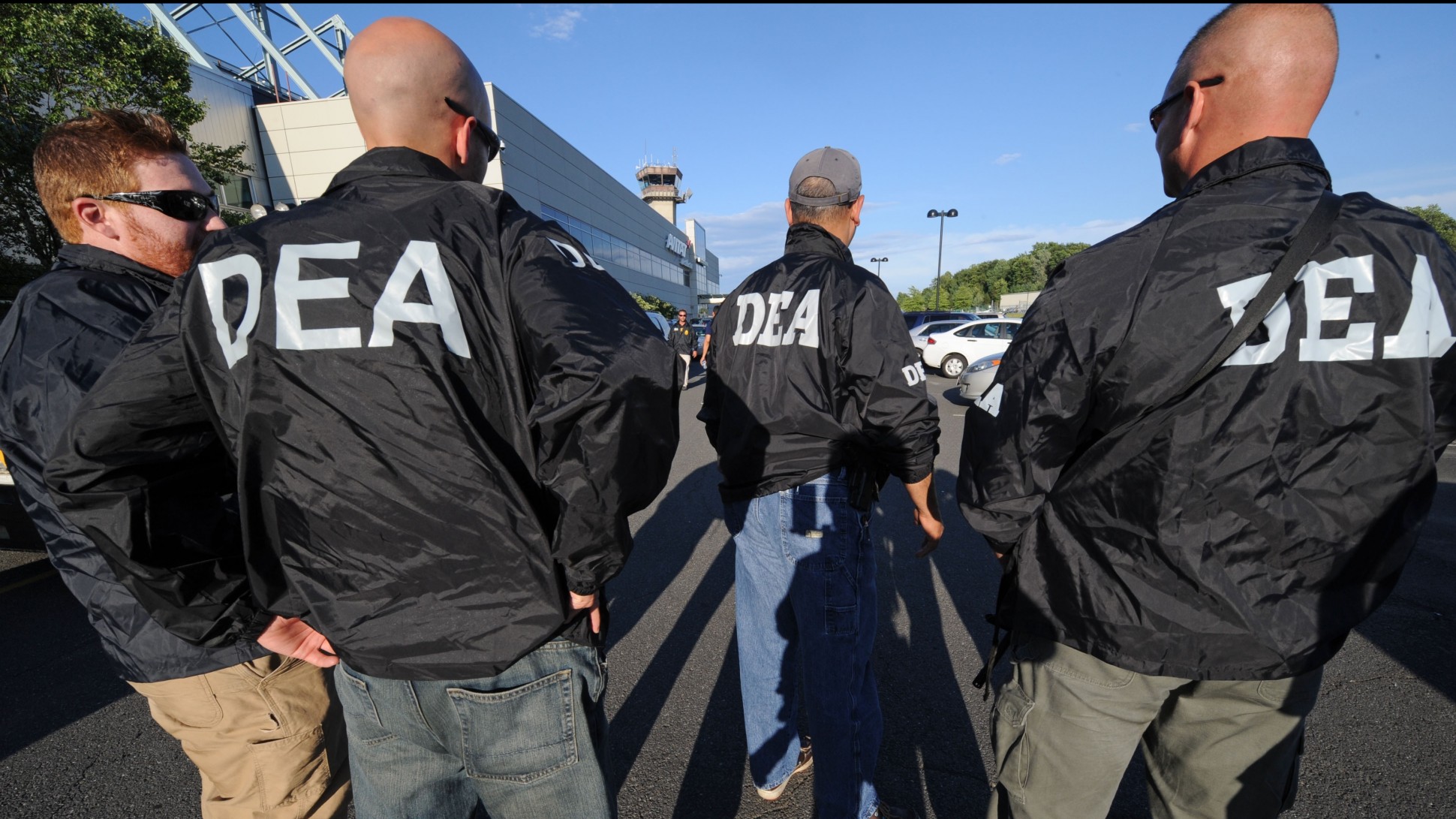A permanently-staffed United States Drug Enforcement Administration (DEA) office will be set up here by mid-January next year and the person to lead it has already been identified, according to new US Ambassador Perry Holloway.
“We have had a number of DEA temporary duty personnel stationed here for weeks or months at a time… and they have been working closely with the appropriate Guyanese authorities on cases, on training, technical assistance,” Holloway stated during a press conference at the US Embassy, in Kingston, yesterday.
He said the US government is hoping to have the office permanently staffed by January 15, 2016. According to the ambassador, there are assessment teams already here working out the final arrangements for the permanent staffing.
“I believe there has already been someone selected to be the head of the office. I can’t share that name right now but he has already been selected and I hope to see him by January 15 and the rest of his team around the same time,” he disclosed.
The DEA office has been sought in Guyana for many years given the country’s high rate of drug trafficking and successive PPP/C administrations and US mission heads have traded blame for the failure to set it up.
After years of discussions, former US Ambassador Brent Hardt had announced last year that the United States Congress had approved funding for a DEA office in Guyana. He had said the office would be located at the US Embassy, with other units will work at a facility determined by government.
Previously, collaboration between local authorities and the DEA was done through the agency’s office in Trinidad.
Roger Khan
Meanwhile, Holloway said the US government is willing to facilitate any request from the Guyana government for access to convicted drug trafficker Roger Khan for the purposes of conducting an inquiry into the operations of a death squad that he is reported to have headed.
“We will certainly, I am sure, be disposed to cooperate again within the framework and the rule of law and how it is set up. A lot of times, the requirements for such requests are pretty high,” he said, while adding that the US government needs something concrete as it doesn’t want “fishing expeditions.”
He explained that there are certain agreements in place with the UN, Guyana and OAS that will allow such a request in certain cases, if the rules and regulations allow.
“Within the agreements that we have or the ones we have done through multilateral international forum, we cooperate with any country of the world,” he stressed.
Khan is currently serving a 15-year sentence in a US jail after pleading guilty to trafficking cocaine, witness tampering and gun-running.
The PPP/C government, under the leadership of then president Bharrat Jagdeo, had long been believed to have allowed Khan a free rein to operate in the name of crime fighting after the country experienced an unprecedented crime wave that was triggered by the February 23, 2002 Camp Street prison break.
Khan, before he was held in neighbouring Suriname in 2006 and then handed over to US authorities, had stated in a public advertisement that he had been fighting crime at the behest of the government. “During the crime spree in 2002, I worked closely with the crime-fighting sections of the Guyana Police Force and provided them with assistance and information at my own expense.
My participation was instrumental in curbing crime during this period,” the ad, published in May, 2006, had stated.
He would often be accompanied by serving or former policemen, usually from the dreaded Target Special Squad. As a vital part of the death squad’s operations, Khan was allowed to acquire spy equipment which enabled him to listen to the telephone conversations and determine the locations of his intended victims.
On the question of the need for the revamping of extradition legislation, Holloway noted that the US is open to extradition with any country as long as it is done through legal means.
He said he recently met with a team from the US in this respect and it is felt that the current legislation “is a perfectly functional tool or mechanism.” He added that even if there is a plan to increase the number of persons extradited in either direction, “it’s probably not worth doing a new agreement if the one we have is perfectly fine.
“We probably have to wait until one [an extradition] occurs and see how it goes but we did review it right before I came down and our assessment was that it is perfectly acceptable, [it] will work just fine. We told that to the government and we’ll see if the government agrees with that assessment or not,” he said.
Holloway informed that if the government is to come to say it cannot work, it will be reviewed since one of the many tools in dealing with international crimes is extradition.






